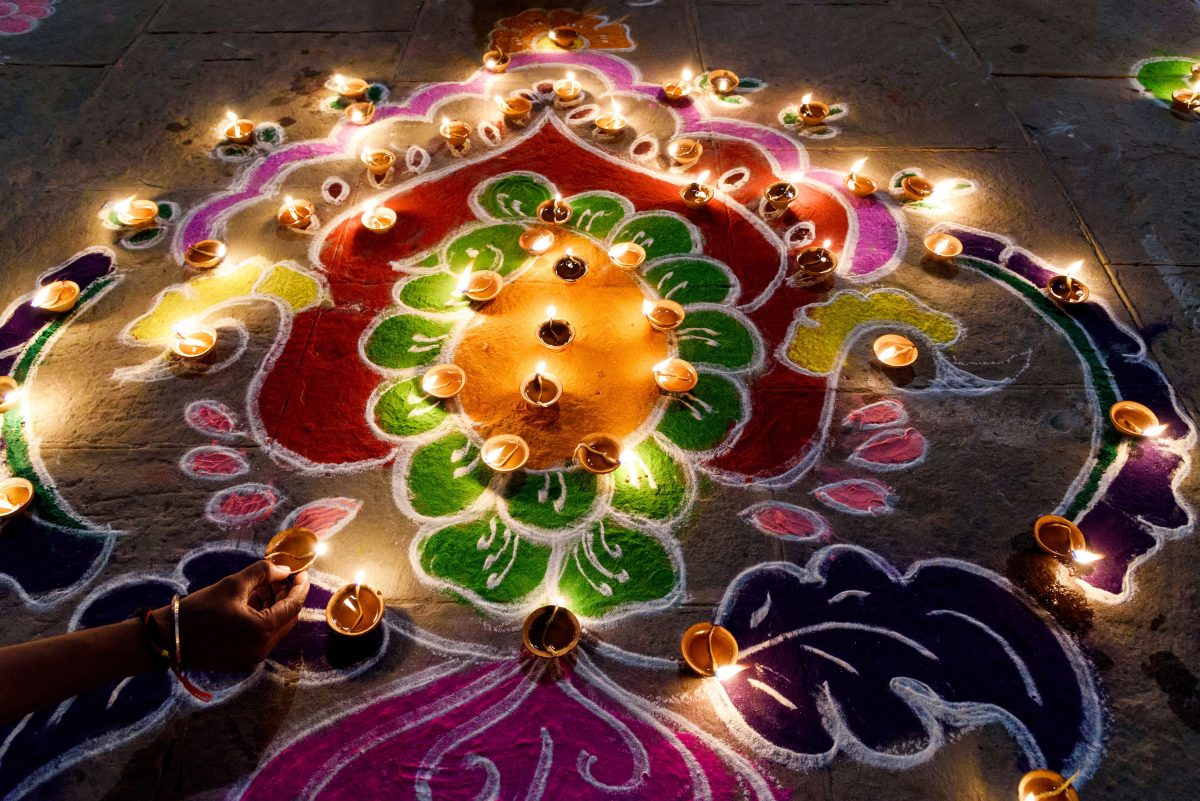It was Jatayu who tried to pursue
Rawan to save Sita, his treasured King’s
wife, as she prayed to her Rama to free
her from Rawan’s clutch, squeezing tight her spleen.
The Vulture King, Jatayu’s time was due.
The demon Rawan’s blade had chopped his wings
and, to his friend, Rama granted Mukti
as he lay dying in the forest green.
Yet the atman of Jatayu mamoo
calmed the sea, while Sita and her young twins,
in the Fatel Razack, crushed and thirsty,
longed for lassi and their royal cuisine.
And wasn’t it Jatayu’s glance askew
that Sita saw while being weighed from springs
on Nelson Island, then given sari
and a bar of blue soap for her hygiene?
It was Jatayu’s steadfastness, like glue,
through the jungles and cane fields, and wasp stings,
that feathered Sita as she ate roti
while fighting off brute hands, rough and porcine.
By the light of her bedi, Sita knew
she was tethered strong, even in wind swings,
by Jatayu, anchored in the flame tree,
who shielded her, as if she were still queen.
Lilawattee Manoo-Rahming
Great-grandmother, Ma
I remember you
with the scarce economy
that fuels story,
your seldom visits
from town country. Home
was Rio Claro –
an entire town,
the place you journeyed from
unannounced
to children too possessed
by holidays and the sea
to have time for you.
All day you sat like a murti
you never prayed before,
serene and strange
on that one peerah
stationed like a hyphen
in the corridor of a house
that opened at one end
to Point Cumana.
At the other was the ocean
that delivered you,
a just-budding adolescent
from a ship, its name
long lost to you,
though not the reason
you came –
to marrid he fadda
(the gesture to the son
who wed Africa and settled
on the rim of the Gulf).
Turteen chirren borne
to the Pa, my father remembers
as a quiet man
who spoke a sweet
and secret Hindi with his wife
and became after
the unspoken before, a tailor.
a man who loved cinema
for the movies of India –
I was too young
to treasure answers to questions
I never asked;
but I remember you,
a small woman draped in cotton
and sheer, perpetually
pulling an orhni forward,
like a private discipline to forfend
an unspoken return, [. . .]
Jennifer Rahim
VISIT VI
No potable water and no electricity.
What fuss when there’s ‘Dig Duttee’ in the night.
A string of fairy-lighted women
Sculpting the night
With tools as old as man-made light.
The Dulha smiles his last smiles
Of bachelorhood.
Miles and miles away the Dulhin
Smiles at her departing flow
Of lamp-bearing women.
From this remote country house
Relatives, friends, guest and i
See two unmarried smiles melt into
Each other and illuminate
The night
As the women head back from time
With dancing lamps
We all see
Fingers of our lost flame of innocence.
Sasenarine Persaud
To India
O land mysterious – dear to me!
Some warbler new will sing of thee!
And tell a greater story;
Go on achieving more and more,
Above life’s petty trifles soar,
And strive in earnest to restore
Thy past resplendent glory.
When Ravan over thee would sway,
Thy hero Rama led the fray,
And saved his lovely Sita;
No happier memory lives in thee
Than his unequalled chivalry,
No wife to thee as chaste could be
As Rama’s faithful Sita.
Save Greece, like thee, what other land
Could dare produce two epics grand
That yet would charm the ages?
Except those classic works were sound,
Containing thoughts both wise, profound,
Could they their readers still astound –
Those deep immortal pages? [. . .]
W.W. Persaud
Diwali (Deepavali, Divali) is one of the great festivals of the Caribbean. It has survived since Indian indentureship (1838 – 1920) in Guyana, Trinidad and Tobago and Suriname, when the workers brought it over from India where it is still a foremost national celebration. In the Caribbean Diwali has evolved among the local festivals with their own identities as national events.


